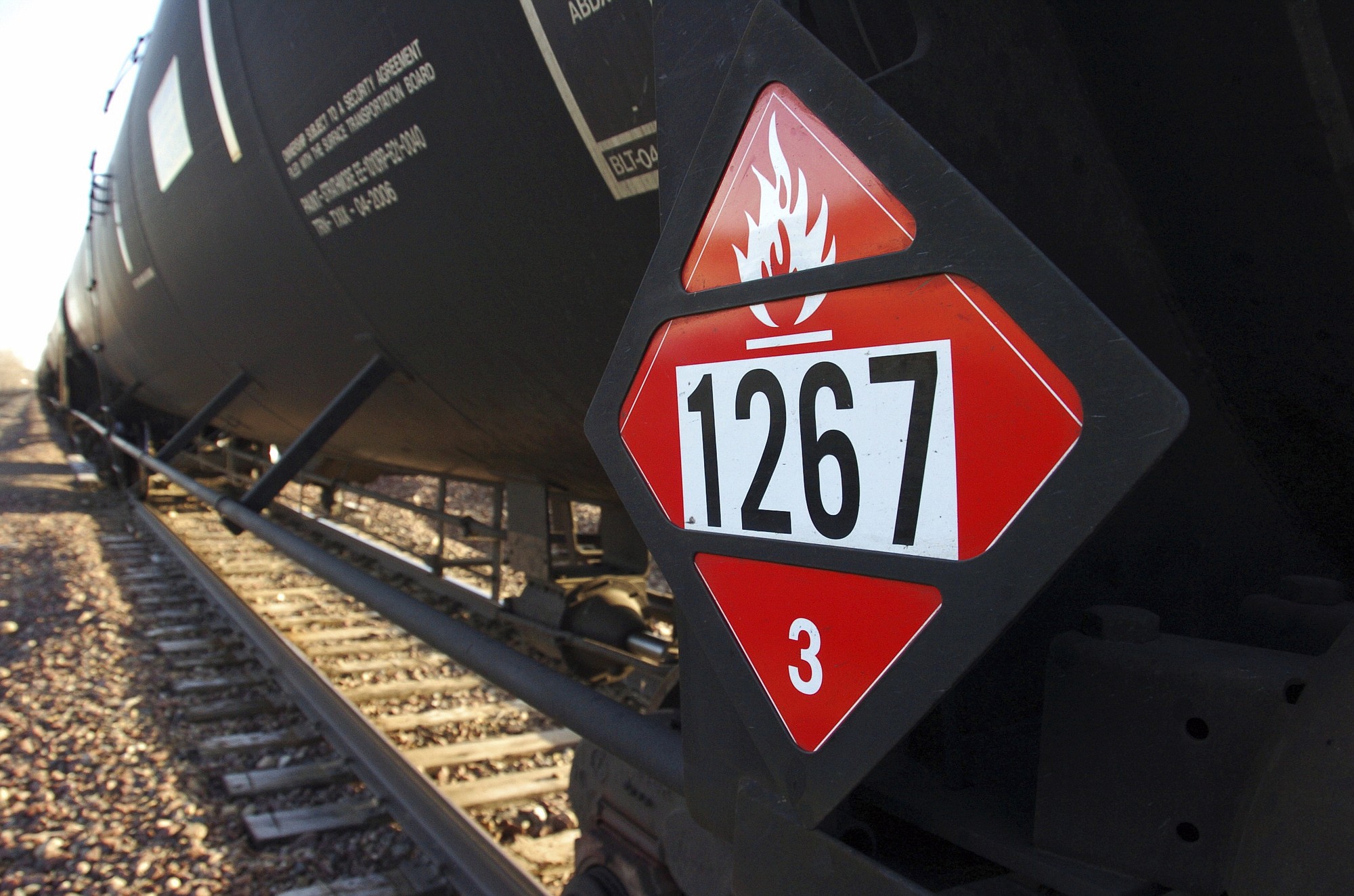OLYMPIA — The number of oil trains running across Washington is unacceptable, and the Legislature will consider bills in the upcoming session that mandate advance notification of oil shipments by rail as well as more funding for railroad crossings and emergency response training, Gov. Jay Inslee said Friday.
King County Executive Dow Constantine added that oil companies are raking in profits while “the rest of us are picking up the costs.”
“Those who are profiting should shoulder the financial burden,” he said.
They were speaking to the Safe Energy Leadership Alliance that met Friday at Olympia City Hall to address the surge of oil and coal trains passing through Washington.
The alliance is a coalition of local, state and tribal leaders from the Northwest who say the trains threaten the environment, economy and public safety.
As shipments of oil increase in the Puget Sound region, so does the likelihood for spills and accidents. The Department of Ecology reports that 19 fully loaded oil trains crisscross the state every week, with the number expected to reach 59 oil trains if current refinery proposals are approved. Each train hauls about 3 million gallons of crude oil in 100 tanker cars.
Participants in Friday’s meeting included elected officials from across the state along with Oregon and Canada.
“It is clear that we have to take significant action including being better prepared to handle an oil train explosion or large-scale spill,” Inslee said.
Although the federal government is the main regulator of the railroads, Inslee said there are some actions the state can take now, such as lowering speed limits of the trains.
“We don’t want vehicles speeding through school zones, and we shouldn’t let oil trains speed through Washington cities,” said Inslee, noting that changes in state permits are at least a year away.
Friday’s meeting included a detailed report on the coal industry by Tom Sanzillo, finance director of the Institute for Energy Economic and Financial Analysis. Sanzillo encouraged states and cities to keep putting pressure on the coal industry, which has seen demand and prices decline worldwide in the past few years.
“The U.S. coal industry is shrinking,” said Sanzillo, adding that the industry needs “robust growth” to meet its potential and compete in the global market despite record demand for coal by nations like China. “Hooking your wagon to the coal industry is not a particularly promising outlook right now.”
Olympia Mayor Stephen Buxbaum said the City Council will seek a resolution this week to add Olympia to the list of cities that oppose the increase in crude oil transport.
“We are at a crossroads,” Buxbaum said Friday. “We could see up to 60 trains a day and 4,000 supertankers in our waters.”
As for the coal issue, Buxbaum recently co-authored a guest column titled “You might be surprised by Puget Sound Energy’s coal power supply” that ran Nov. 19 in The Seattle Times. Also signing the article were Bainbridge Island Mayor Anne Blair and Mercer Island Mayor Bruce Bassett, and all three mayors’ respective city councils endorsed it.
The article urges Puget Sound Energy to take immediate action and plan for a “post-coal future.” About one-third of PSE’s power supply comes from coal that’s shipped from out of state, according to the article. The mayors also cite Gov. Inslee’s recent executive order to reduce pollution and transition away from coal power.
“The bottom line is that we don’t need coal,” the article states. “The potential is there for Washington to meet its energy needs with efficiency programs, wind, solar and other technologies. We just need to rise to the occasion.”



